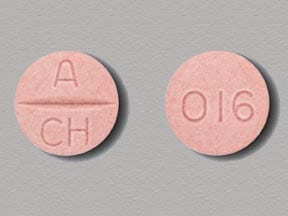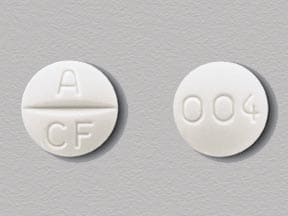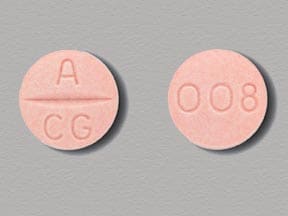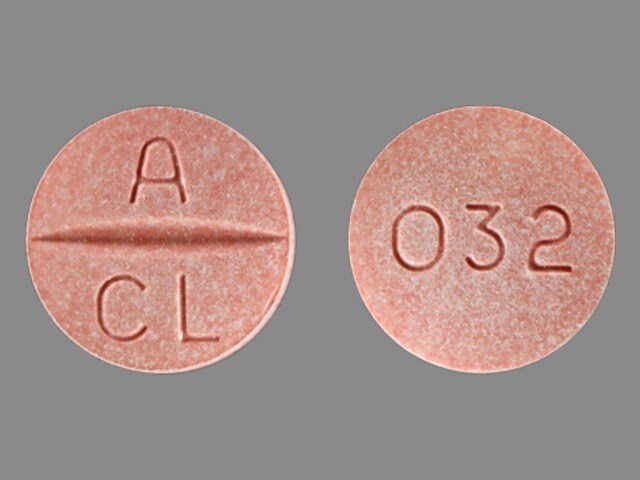What is Atacand?
Atacand is a prescription medicine called an angiotensin receptor blocker (ARB).
Atacand is used to:
- treat high blood pressure in adults and children, 1 to 17 years of age
- treat certain types of heart failure in adults, to reduce death and hospitalization for heart damage and heart failure
Heart failure is a condition where the heart does not pump blood as well as it should.
Atacand must not be used in children less than 1 year of age for high blood pressure.
How does Atacand work?
Atacand is a type of medicine called angiotensin receptor blocker, which blocks the effect of the hormone angiotensin II, causing the blood vessels to relax. This helps lower blood pressure. Medicines that lower your blood pressure lower your chance of having a stroke or heart attack.
What is the most important information I should know about Atacand?
Atacand can cause harm or death to an unborn baby. Talk to your doctor about other ways to lower your blood pressure if you plan to become pregnant. If you get pregnant while taking Atacand, tell your doctor right away.
Who should not take Atacand?
Do not take Atacand if you:
- are allergic to any of the ingredients in Atacand. See the end of this leaflet for a complete list of ingredients in Atacand.
- are diabetic and taking aliskiren.
What should I tell my healthcare provider before taking Atacand?
Before you take Atacand, tell your doctor if you:
- have heart problems
- have liver problems
- have kidney problems
- currently have vomiting or diarrhea
- are scheduled for surgery or anesthesia. Low blood pressure can happen in people who take Atacand and have major surgery and anesthesia.
- have any other medical conditions
- are pregnant or planning to become pregnant. See “What is the most important information I should know about Atacand?”
- are breast-feeding or plan to breast-feed. It is not known if Atacand passes into your breast milk. You and your doctor should decide if you will take Atacand or breast-feed. You should not do both.
Tell your doctor about all the medicines you take, including prescription and non-prescription medicines, vitamins and herbal supplements. Atacand and other medicines may affect each other causing serious side effects. Atacand may affect the way other medicines work, and other medicines may affect how Atacand works.
Especially tell your doctor if you take:
- lithium carbonate (Lithobid) or lithium citrate, medicines used in some types of depression
- other medicines for high blood pressure, especially water pills (diuretics)
- potassium supplements
- salt substitutes
- non-steroidal anti-inflammatory drugs (NSAIDs)
Know the medicines you take. Keep a list of your medications with you to show your doctor and pharmacist when a new medication is prescribed. Talk to your doctor or pharmacist before you start taking any new medicine. Your doctor or pharmacist will know what medicines are safe to take together.
How should I take Atacand?
- Take Atacand exactly as prescribed by your doctor.
- Do not change your dose or stop Atacand without talking to your doctor, even if you are feeling well.
- If your child cannot swallow tablets, or if tablets are not available in the prescribed strength, your pharmacist will prepare Atacand as a liquid suspension for your child. If your child switches between taking the tablet and the suspension, your doctor will change the dose as needed. Shake the bottle of suspension well before each dose.
- Atacand is taken by mouth with or without food.
- If you miss a dose of Atacand, take it as soon as you remember. If it is almost time for your next dose, skip the missed dose. Take the next dose on time. Do not take 2 doses at one time. If you are not sure about your dosing call your doctor or pharmacist.
- If you take more Atacand than prescribed, call your doctor, local poison control center, or go to the nearest emergency room.
What should I avoid while taking Atacand?
Atacand can cause you to feel dizzy or tired. Do not drive, operate machinery, or do other dangerous activities until you know how Atacand affects you.
What are the possible side effects of Atacand?
Atacand may cause serious side effects, including:
- Injury or death to your unborn baby. See “What is the most important information I should know about Atacand?”
- Low blood pressure (hypotension). Low blood pressure is most likely to happen if you:
- take water pills (diuretics)
- are on a low salt diet
- get dialysis treatments
- are dehydrated (decreased body fluids) due to vomiting and diarrhea
- have heart problems
If you feel dizzy or faint lie down and call your doctor right away.
Low blood pressure can also happen if you have major surgery or anesthesia. You will be monitored for this and treated if needed. See “What should I tell my doctor before taking Atacand?”
- Worsening kidney problems. Kidney problems may get worse in people that already have kidney disease or heart problems. Your doctor may do blood tests to check for this.
- Increased potassium in your blood. Your doctor may do a blood test to check your potassium levels as needed.
- Symptoms of allergic reaction. Call your doctor right away if you have any of these symptoms of an allergic reaction:
- swelling of your face, lips, tongue or throat
- rash
- hives and itching
The most common side effects of Atacand are:
- back pain
- dizziness
- cold or flu symptoms (upper respiratory tract infection)
- sore throat (pharyngitis)
- nasal congestion and stuffiness (rhinitis)
Tell your doctor or pharmacist about any side effect that bothers you or that does not go away.
These are not all the side effects of Atacand. Ask your doctor or pharmacist for more information.
Call your doctor for medical advice about side effects. You can report side effects to FDA at 1-800-FDA-1088.
Atacand Images
General information about the safe and effective use of Atacand
Medicines are sometimes prescribed for conditions that are not mentioned in patient information leaflets. Do not use Atacand for a condition for which it was not prescribed. Do not give Atacand to other people, even if they have the same problem you have. It may harm them.
This leaflet summarizes the most important information about Atacand. If you would like more information, talk with your doctor. You can ask your doctor or pharmacist for information about Atacand that is written for health professionals.
For more information, visit www.anipharmaceuticals.com or call 1-800-308-6755.
How should I store Atacand?
- Do not keep medicine that is out of date or that you no longer need.
- Store Atacand tablets at room temperature below 86°F (30°C).
- Store Atacand oral suspension at room temperature below 86°F (30°C).
- Use the oral suspension within 30 days after first opening the bottle. Do not use after the expiration date stated on the bottle.
- Do not freeze.
- Keep the container of Atacand closed tightly.
Keep Atacand and all medicine out of the reach of children.
What are the ingredients in Atacand?
Active ingredient: candesartan cilexetil.
Inactive ingredients:
Tablets and oral suspension: hydroxypropyl cellulose, polyethylene glycol, lactose, corn starch, carboxymethylcellulose calcium, and magnesium stearate. Ferric oxide (reddish brown) is added to the 8-mg, 16-mg, and 32-mg tablets as a colorant.
Atacand oral suspension also includes: Ora Plus, Ora Sweet or Ora-Blend.









